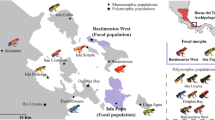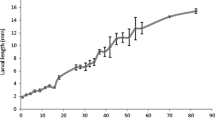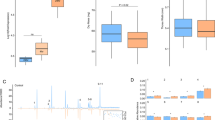Abstract.
Here we present evidence that the male mating products (sperm and gland products) reduce survival during hibernation of queens of the bumblebee B. terrestris. Most remarkably, the inseminated queens are significantly more likely to have melanized spermathecae than their virgin sisters. Although we could not detect a direct relationship between these two findings they are quite remarkable since B. terrestris is a monandrous and comparably long-lived insect where sexual conflict is unlikely to evolve. The reduced survival can probably be attributed to a general cost of maintaining the sperm, whereas the presence of melanized spermathecae in the inseminated queens may indicate a pathogen transferred during mating or genetic incompatibilities between males and queens.
Similar content being viewed by others
Author information
Authors and Affiliations
Corresponding author
Additional information
Received 30 December 2007; revised 27 April 2008; accepted 1 May 2008.
Rights and permissions
About this article
Cite this article
Greeff, M., Schmid-Hempel, P. Sperm reduces female longevity and increases melanization of the spermatheca in the bumblebee Bombus terrestris L.. Insect. Soc. 55, 313–319 (2008). https://doi.org/10.1007/s00040-008-1007-4
Published:
Issue Date:
DOI: https://doi.org/10.1007/s00040-008-1007-4




